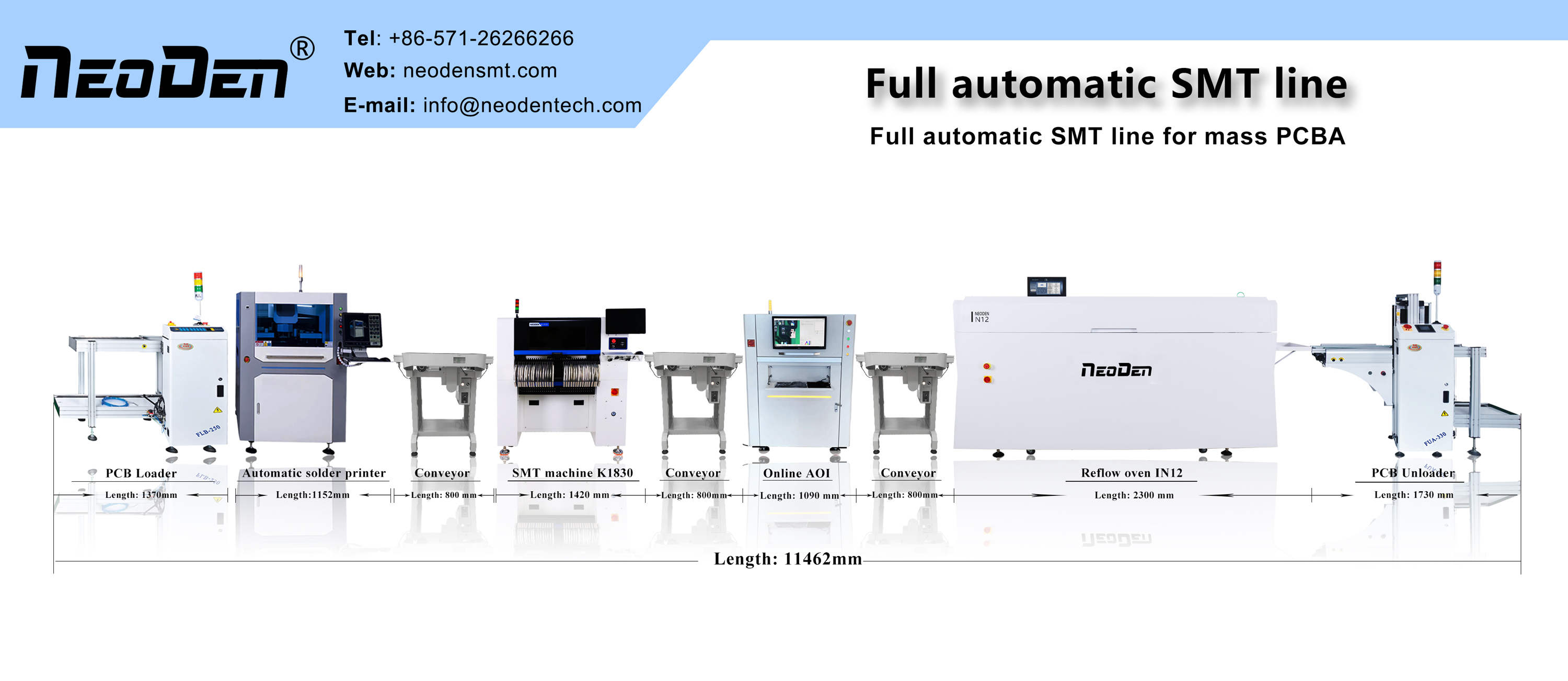Wave soldering machine is a commonly used surface mount soldering method for soldering electronic components to printed circuit boards.
Wave soldering works by moving the PCB, which is pre-coated with solder paste, through a conveyor mechanism to the solder wave area. In the wave area, melted solder (usually tin alloy) forms the wave shape. Under the action of the wave, the electronic components on the PCB come into contact with the solder to form a solder joint. The PCB is then removed from the wave area and cooled to solidify the solder joint.
The following is the process flow of wave soldering:
1. Preparation
Prepare the PCB and electronic components to be soldered, ensure they are of good quality, and perform the necessary surface preparation such as cleaning and oxidation removal.
2. Apply solder paste
Apply solder paste to the appropriate soldering area on the PCB, the solder paste is usually applied on the contact surface of the component pins and PCB pads.
3. Pick and place Components
Accurately attaching electronic components to the PCB at predetermined locations. This can be done using an automated SMT machine or by hand.
4. Wave Soldering Machine Setup
According to the soldering requirements and specifications, set up the soldering parameters of the wave soldering machine, including soldering temperature, wave height, preheating zone and soldering speed.
5. Perform soldering
The mounted PCB is moved to the soldering wave area through the conveyor mechanism. The melted solder in the solder wave area will contact the pads and component pins on the PCB to form a solder joint.
6. Cooling and curing
After the PCB is removed from the solder wave area, the solder joint is rapidly cooled and cured into a stable solder connection by a cooling process.
7. Inspection and Quality Control
The PCB is inspected and quality controlled after soldering, including visual inspection, X-ray inspection, and solder joint reliability test to ensure that the solder quality meets the requirements.
Features of NeoDen wave soldering machine
Heating Method: Hot Wind
Cooling method: Axial fan
Transfer Direction: Left→Right
Temperature Control: PID+SSR
Machine Control: Mitsubishi PLC+ Touch Screen
Flux tank capacity: Max 5.2L
Spray Method: Step Motor+ST-6
Power: 3 phase 380V 50HZ
Air source: 4-7KG/CM2 12.5L/Min
Post time: Mar-06-2024

